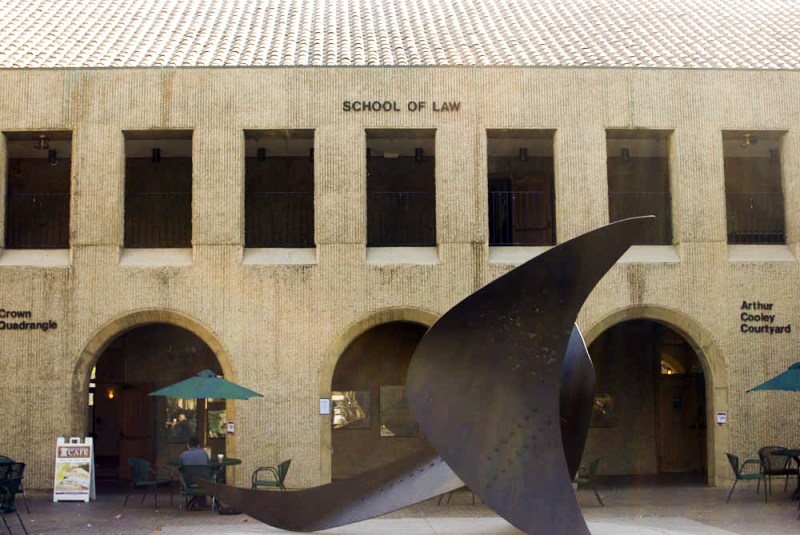Two graduate students who spoke with The Daily have been given the first-name pseudonyms, Amy and Sarah, respectively. Their identities, while known by The Daily, are being withheld due to the private nature of their situations.
When the California Supreme Court announced changes to the California Bar Exam to address difficulties posed by the COVID-19 pandemic, it did not once mention what graduates applying for accommodations because of disabilities could do.
While all graduates can apply for a provisional license, many graduates may still need to take the California Bar Exam instead at the scheduled time on Oct. 5-6.
The State Bar of California released a FAQ which said that applicants applying for accommodations may be made to take an in-person exam instead of an online exam. The State Bar listed accommodations that would require an in-person exam, including if an applicant needs double time on the exam and cannot “stay in view of the web camera for up to three hours, or until the applicant submits their answer file.”
If the applicant does not want to test in person, the State Bar states that applicants “may elect to waive or reduce your extra testing time or test in-person with your accommodations as granted.”
This decision has forced many graduates with disabilities into a corner, as they now must decide between risking their health and their future career.
“I am being forced to choose between testing in person during a pandemic or getting the combinations that I believe I have a right to,” Amy said in an interview with The Daily. “But because of my history of thyroid cancer and autoimmune disease, I can’t take that chance.”
Amy is asking for “double time,” which the State Bar says will require an in-person examination. But because of the graduate’s autoimmune disease, taking an in-person exam is simply not an option.
“That takes the bar exam off the table for me,” Amy said. “There are people who have to feed their families. There are people who are desperate to take this test. I’m desperate, but not to the point where I have to risk my life or the life of my family.”
According to the State Bar FAQ, applicants can choose to waive their accommodations and take the online remote exam without the accommodations, and do not have to withdraw from the exam.
If taking an in-person exam is dangerous for the test-taker because of an autoimmune disorder or other reasons, then their only other option is to waive the accommodations and be put at a disadvantage. For Amy, this means that they can only ask for 50% extra time instead of the double time that is needed.
Another graduate, Sarah, told The Daily they believed it “borderline morally reprehensible to force students with disabilities to test in person, when no one else is being forced to test in person because [of] a fatal virus.”
Graduates with a disability that forces them to need to use the restroom multiple times during the exam are also being forced to take an in-person exam, as the online bar examination rules specifically state that no restroom breaks will be allowed during the test.
Tom McMasters, a technology and data privacy lawyer, told The Daily that the exam policies will disproportionately affect test takers with disabilities. For example, some engage in “stimming,” or “self-stimulating behaviors, usually involving repetitive movements or sounds,” according to healthline. Under current administration conditions, if a test-taker needs to constantly stretch or stand up and accidentally goes off camera, they might be flagged for cheating on the exam.
The State Bar held a Q&A call with test-takers with disabilities, but Amy felt that the gesture fell shart, and that the call was not truly meant to help them.
“The State Bar pretended to listen with open comments, but never actually took it seriously . . . and I’ve never been so offended in my life by what that public comment session was,” they said. “There was no humanity on their faces, no empathy and no sense of being heard.”
“And that was the first time that I’ve cried since this all started,” they said. “And it was out of anger. Because that’s unacceptable. It’s disrespectful. It’s just beyond offensive.”
The State Bar did not respond to requests for comment.
Both anonymous graduates noted that these accommodations do not give them an advantage, but actually just level the playing field.
“If you need glasses to be able to read, it would be unfair to say you can’t wear your glasses to take the bar exam because then you can’t read it,” Sarah explained. “And that’s what accommodations essentially are. They [allow] you to participate equally with everyone else.”
This article has been updated to reflect that the State Bar did not respond to requests for comment.
Contact Sahil Venkatesan at sahiljv15 ‘at’ gmail.com
